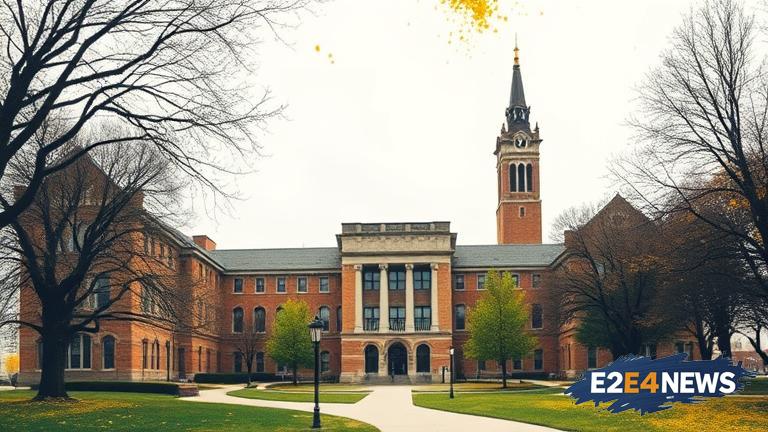A lawsuit has been filed against the University of Michigan, challenging the university’s free speech policies. The lawsuit, which was filed in a federal court, alleges that the university’s policies are too broad and vague, and that they infringe upon students’ First Amendment rights. The plaintiffs in the case argue that the university’s policies prohibit speech that is deemed ‘biased’ or ‘harmful’, but that these terms are not clearly defined. As a result, the plaintiffs claim that students are often unsure of what speech is allowed and what is not, and that this uncertainty has a chilling effect on free speech. The lawsuit also alleges that the university has enforced its policies in an arbitrary and discriminatory manner, targeting certain groups of students while ignoring others. The University of Michigan has defended its policies, stating that they are necessary to maintain a safe and inclusive learning environment. However, the plaintiffs argue that the university’s policies go too far and that they are not narrowly tailored to achieve the university’s goals. The lawsuit is seeking a declaration that the university’s policies are unconstitutional, as well as an injunction prohibiting the university from enforcing them. The case has sparked a national debate about the balance between free speech and inclusivity on college campuses. Many experts have weighed in on the issue, arguing that universities have a responsibility to protect students from harassment and discrimination, but that they must also ensure that students have the freedom to express their opinions and engage in open and honest debate. The University of Michigan is not the only university to face challenges to its free speech policies. In recent years, several other universities have been sued over their policies, and the issue is likely to continue to be a topic of controversy in the years to come. The lawsuit against the University of Michigan is a reminder that the issue of free speech on college campuses is complex and multifaceted, and that there are no easy answers. As the case moves forward, it will be important to consider the potential implications of the university’s policies, not just for students at the University of Michigan, but for students at universities across the country. The outcome of the case could have significant implications for the future of free speech on college campuses, and it will be closely watched by experts and advocates on all sides of the issue. The University of Michigan has a long history of promoting free speech and academic freedom, and it will be important to consider this history as the case moves forward. Ultimately, the lawsuit against the University of Michigan is a reminder that the issue of free speech is ongoing and evolving, and that it will require careful consideration and nuanced thinking to resolve. The case is a complex one, and it will likely take several months or even years to resolve. In the meantime, the University of Michigan will continue to defend its policies, while the plaintiffs will continue to argue that they are unconstitutional. The case has the potential to be a landmark one, and it will be closely watched by experts and advocates on all sides of the issue.
